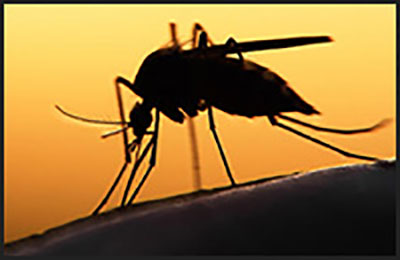ST. GEORGE’S, GRENADA, MAY 4, 2016, GOVERNMENT INFORMATION SERVICE (GIS): – The Ministry of Health wishes to advise that Grenada has reported its first laboratory confirmed case of Zika infection.
A 27year-old female non-Grenadian was diagnosed as the island’s first, with the mosquito related illness. The case was confirmed today, Wednesday May 4 2016 at midday by the Caribbean Public Health Agency (CARPHA), based in Trinidad.
The patient who reported fever and rash on April 26 was seen by a private practitioner on April 27 where her blood sample was taken.
THE MINISTRY’S PUBLIC HEALTH RESPONSE:
The Ministry was officially notified on April 28 and enacted the protocol to dispatched the sample to CARPHA laboratory where it was confirmed to be positive for Zika virus by reverse transcription polymerase chain reaction (RT-PCR).
The patient has a history of recent travel to St. Vincent and the Grenadines, which has reported cases of Zika virus infection. She later returned to Grenada to take up employment duties.
Upon receiving notification of the suspected case the Ministry had dispatched vector control teams to the area where entomological surveillance, treatment, and fogging were undertaken.
At a press briefing on Wednesday, Health Minister Nickolas Steele said his staff aggressively took those measures to contain the possible spread of the the virus and to ensure that the Ministry of Health continues its eradication efforts of the Aedes aegypti Mosquito.
Chief Medical Officer Dr. George Mitchell who also spoke to reporters indicated that the Ministry was in touch with the patient.
While the Government of Grenada has been at the forefront of the national response with the support of private and public stakeholders in preventing and managing this threat, the Ministry is obligated to remind the public of their duty to take personal responsibility in dealing with mosquito borne diseases.
MOH ADVICE:
As a consequence the MOH reiterates that individuals should adhere to the undermentioned practices as a means of protecting themselves;
The proximity of mosquito vector breeding sites to human habitation is a significant risk factor for Zika virus infection. Prevention and control relies on reducing the breeding of mosquitoes through source reduction (removal and modification of breeding sites) and reducing contact between mosquitoes and people.
This can be achieved by reducing the number of natural and artificial water-filled habitats that support mosquito larvae, reducing the adult mosquito populations around at-risk communities and by using barriers such as insect screens, closed doors and windows, long clothing and repellents.
Since the Aedes mosquitoes (the primary vector for transmission) are day-biting mosquitoes, it is recommended that those who sleep during the daytime, particularly young children, the sick or elderly, should rest under mosquito nets (bed nets), treated with or without insecticide to provide protection. Mosquito coils or other insecticide vaporizers may also reduce the likelihood of being bitten.
During outbreaks, space spraying of insecticides may be carried out following the technical orientation provided by WHO to kill flying mosquitoes. Suitable insecticides (recommended by the WHO Pesticide Evaluation Scheme) may also be used as larvicides to treat relatively large water containers, when this is technically indicated.





